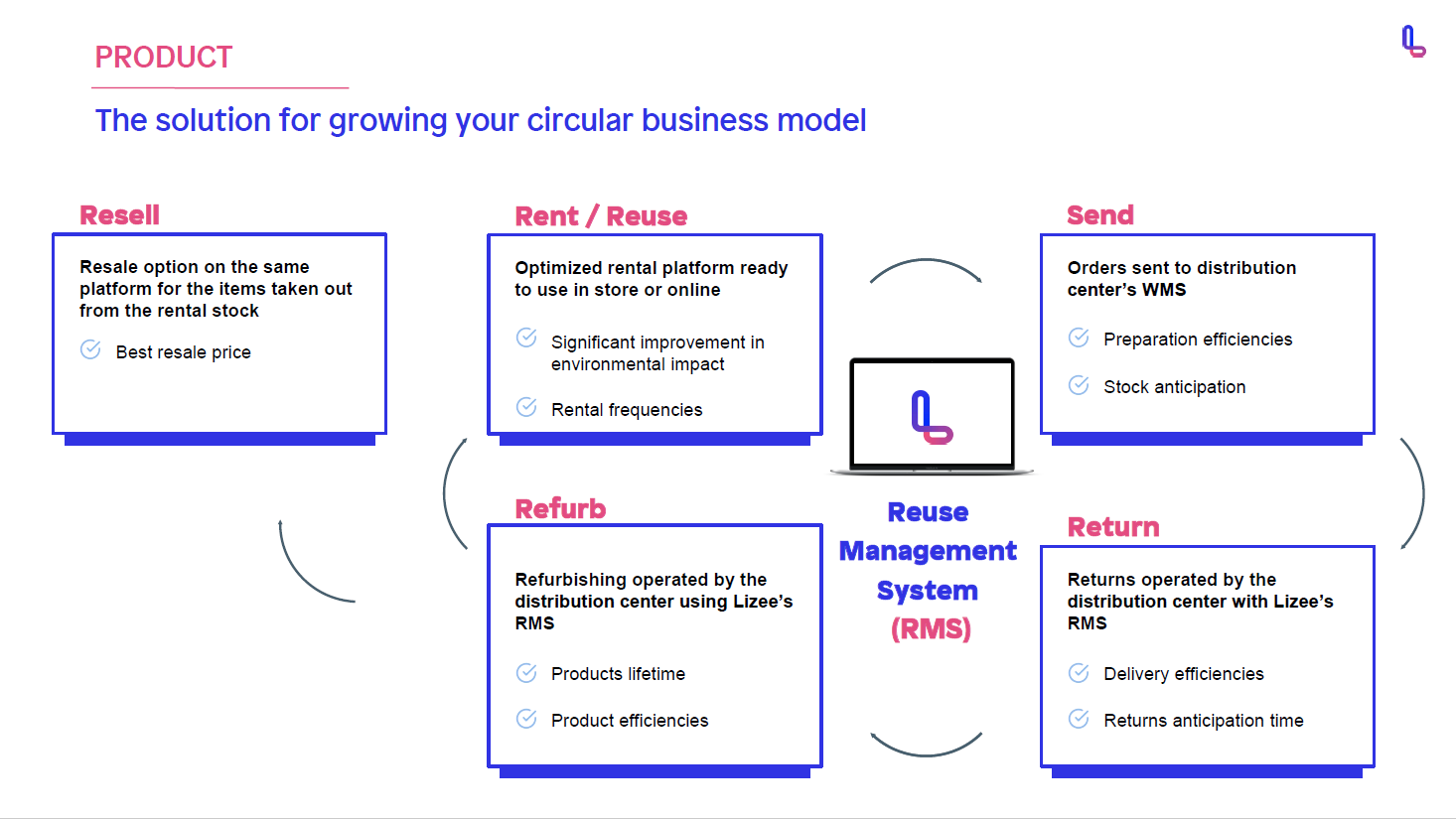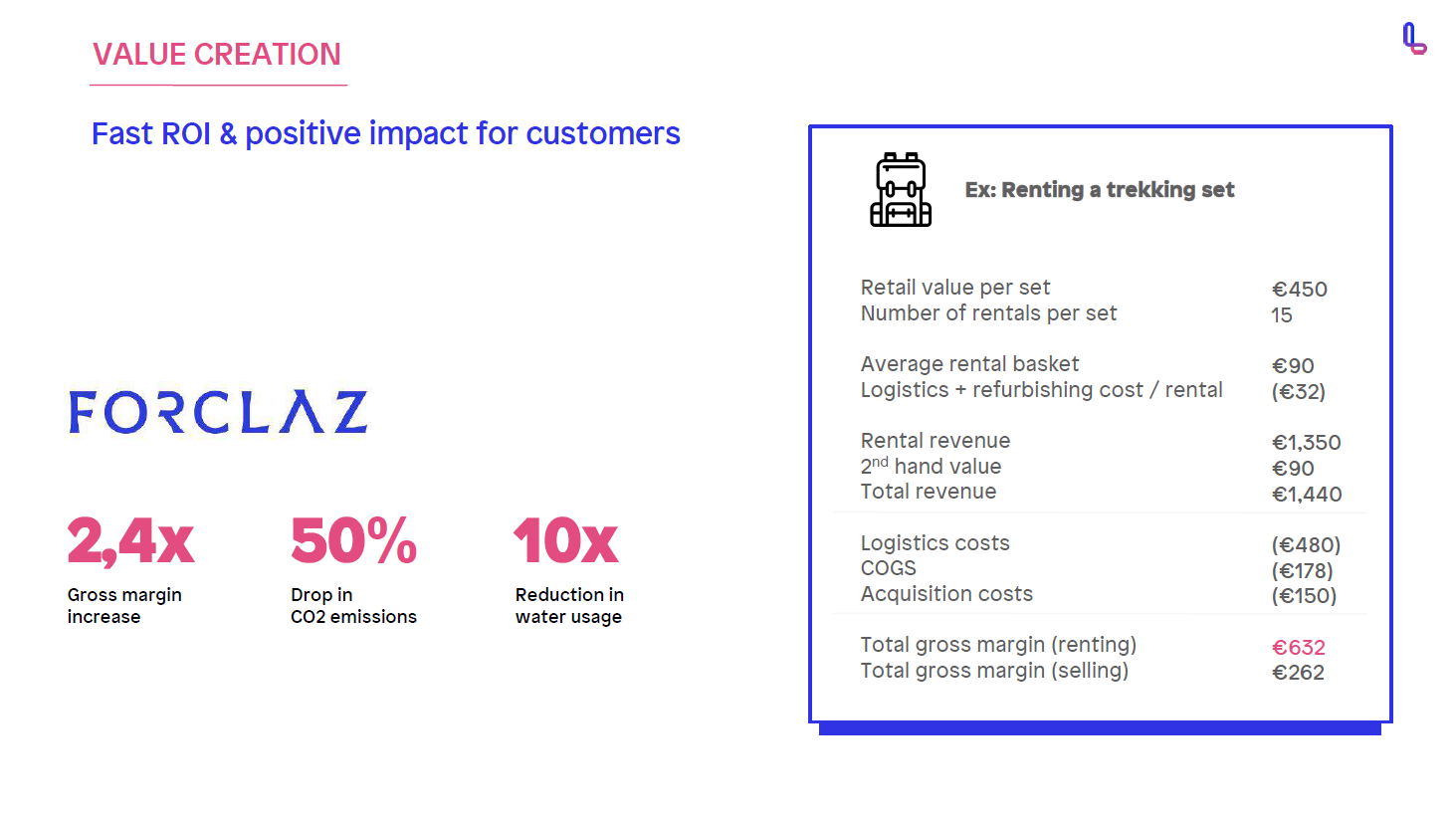Lizee is a Paris-based startup helping retail brands accelerate their adoption of a circular economy. The company’s proposition is simple - “turning selling to renting.”
Retail brands revolve around selling and selling more. Selling more helps drive consumption on one end of the value chain and supplies need on the other end of the value chain. More supplies means more production, and more production generally means greater carbon footprints. The retail industry is one of the most polluting in the world.
As retail brands consider how to “go green” and reduce the carbon footprint of their existing business model (which relies on selling), becoming a participant in the circularity of goods is appealing. This switch changes an underlying business model and will take investment to change from selling to renting. It also requires a change in the supply chain - from producing less to encouraging customers to use more. Technology can help.
Lizee is a promising emerging player in the space. Lizee provides rental software solutions that are adaptable to retailers’ e-commerce and logistic solutions. Retailers don’t have to start from scratch to build a rental business model and worry about technology infrastructure, integrations, and data analytics. They can rely on Lizee to provide the technology systems that will help retail brands become even more successful in ecommerce and more sustainable at the same time.

What are components of this rental software that helps brands such as Decathlon (a Lizee customer) jump start their rental business?
- Rental stock management
- Refurbishment management
- After sale management
- In-store rental management
- Payments
- Customer success
- Reporting and dashboard
The rental business model is not necessarily new. Companies such as Rent the Runway, Airbnb, and the entire automotive leasing industry pioneered an operating model that persevered amidst initially skeptical consumer and investor audiences. The rental model is now being considered by existing retail brands as a way to include circularity and reuse design within existing business structures. It’s not just clothes or cars or phones that can be rented and reused. The rental model is a way to meet consumer expectations, drive new revenue streams and make the world more sustainable at the same time.
The economics speak for themselves. If circularity and reuse are implemented in the right way, the repeated use of one single good or product can garner longer “life time value” and generate recurring revenue. During Understory’s recent ‘Startups Driving Sustainability’ Showcase event, Lizee showed an impactful customer example to demonstrate how circularity and reuse in the business model can help contribute to revenue increase and margin expansion.

Lizee’s SaaS-based reuse management system helps accelerate the transition to this rental business model. While companies are interested in adopting circularity, the switch can be difficult without the right tools, backend operations, and support. Lizee’s platform takes the friction out of adopting the new model by streamlining the process and focusing on profitability and scale. The technology can also drive benefits beyond increased profitability: inventory clearance, ability to reach new customer segments, increasing store traffic, and data analytics that can be used throughout the business to enhance decision making.
Learn more about Lizee and its circular economy technology by viewing Understory’s March 2021 ‘Startups Driving Sustainability’ Showcase recording.







Join the conversation.